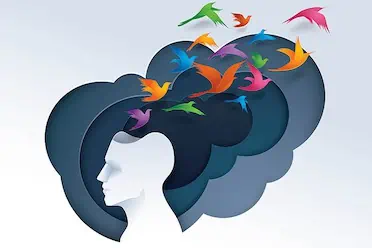Yolanda’s thought-provoking blogs empower you to navigate the intricate landscapes of your inner self, exploring how ego, mindset, identity and self-limiting beliefs often hold us back. Discover the keys to harnessing your inner game and gain a deeper understanding of the core elements that shape your success, both in leadership, career and life.
Subscribe to Yolanda's monthly blog to get actionable wisdom and practical tools delivered straight to your inbox each month.

As someone who has spent countless hours working on my self-awareness and development, I still regularly get in my own way. Over the past few weeks, I've been leaning more into the self-awareness tools I teach others to help me shift unhelpful thoughts and behaviours.

I love guiding teams through the complexities of interpersonal dynamics, helping them better understand themselves and each other to drive results. So with all this insight you'd think my own team would be firing on all cylinders, right? Well, not quite. We're a work in progress just like all teams.

Mentorship can be a powerful career accelerator and open up different perspectives and growth opportunities for both mentors and mentees. I wouldn't be where I am today without the generosity of my mentors; I bet you feel the same. Ready to pay it forward?

For a profession whose success depends on seeing something that others don’t, cultivating the habits that improve EQ should be in every investors’ toolkit. After two decades working in and around the investments industry, I’ve witnessed the sharp intellect of successful investors and the pride they take in it. In this industry, IQ reigns supreme. But what about emotional intelligence (EQ)?

Trust can make or break a team’s success. This is especially true in complex, fast-paced environments like investments where stakes are high and individuals can be more prone to ego-driven behaviours. The pressure to outperform and deliver results intensifies competitive tendencies, making it even more crucial to establish a culture of trust.

It turns out resilience does more than just help you navigate life’s challenges. It could also add a decade to your life, according to research from UNSW. When I read about this and delved deeper to see how the researchers defined resiliency, I felt that delightful buzz of having my core beliefs confirmed and bolstered.

Trump’s sledgehammer to the US DEI agenda has sent shockwaves through corporate America, forcing global firms to reassess their policies and programs. While it seems most Australian firms are standing by their policies and commitments, many are reviewing opportunities to recalibrate messaging. This is a good thing. I’ve long argued that a DEI agenda fixated on identity over humanity lacks the nuance needed to create truly meritocratic workplaces where women and men have equal access to opportunities.

Conviction in investments is essential. It drives outsized market returns,underpins risk-taking, and steadies you through market storms. But conviction alone can only take you so far. Without humility, it’s a short step away from overconfidence or fear-based reactivity - a mistake even the best investors can make.

In fast-moving, high-pressure environments like funds management, technical competence and sharp analysis only get you so far. At a certain level, the question shifts from what you know to how you lead.

Forget time management – it’s your energy that counts. In this blog, Yolanda discusses your Zone of Genius where work fuels you, not drains you. It starts with small, deliberate moments that light you up – and protecting them fiercely.

I've had a few conversations with clients and my team members recently that have served as potent wake-up calls, reminding me of the silent influence of micro-stress and the importance of self-reflection and vulnerability in leadership.

I find many of my clients (and myself and my team) are struggling more and more with micro-stress. The subtle, often unacknowledged stress we encounter everyday that piles up and depletes our energy. I share some practical tips to help mitigate and manage micro-stress in our lives.

In this blog, I discusses the five stages of adult development and how through self-awareness and reflection we can discover and extend our personal effectiveness and fulfilment.

A review of the five stages of adult development and how you can move up into higher levels through self-awareness and reflection.

Mental complexity relates to the way we make sense of the world and identity. In this blog I discuss tools and insights on how we can increase our mental complexity for greater effectiveness and performance.

From personal goals to organisational reform, the ability to change is often stubbornly elusive. In this blog, I explore why we find change so hard and how the Immunity to Change X-Ray Tool can help.

Research from McKinsey and Company shows that 70% of all organisational change programs fail, largely due to employee resistance and lack of management support. What is this opposition all about?
Share: